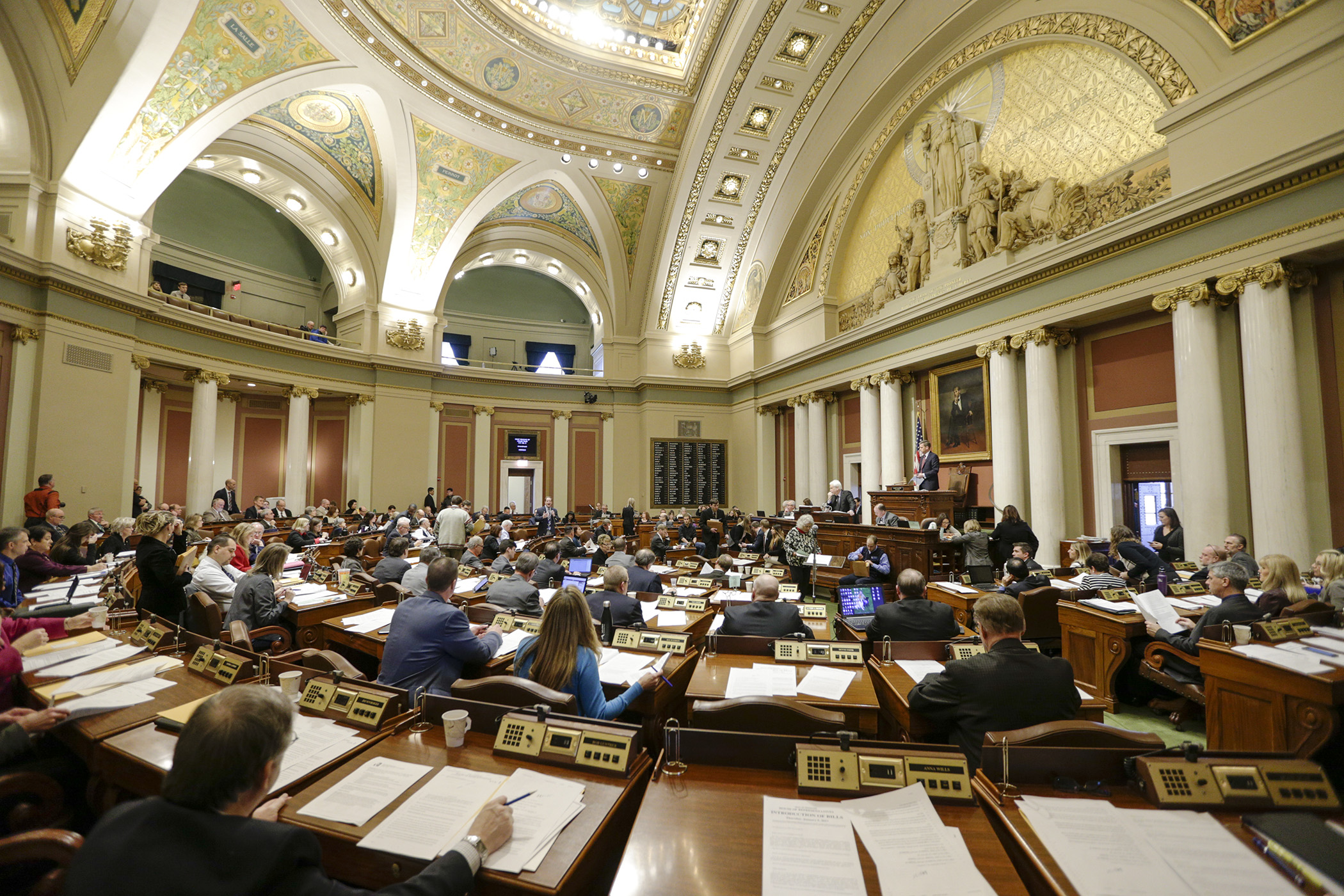House passes $542 million state-based reinsurance bill
With an upfront price tag of $542 million, a plan to subsidize insurance companies in exchange for the hope of stabilizing the individual market and lowering premiums passed the House Thursday on a 74-57 vote.
Sponsored by Rep. Greg Davids (R-Preston) and Sen. Gary Dahms (R-Redwood Falls), the conference committee report on HF5*/SF270 would establish a state-based reinsurance program. Under the bill, dubbed the Minnesota Premium Security Plan, a nonprofit board would allocate a combination of federal and state funding to insurance companies who carry high-cost customers – people who tend to drive up costs in the individual market.
Hoping to send the proposed legislation to the governor before the Legislature’s self-imposed April 1 deadline, the Senate passed the bill 35-32 a few hours later. The governor has said he won’t sign a reinsurance bill without a commitment from the insurance companies, which he said he hasn’t received yet.
 House Photography file photo
House Photography file photoSkeptical Democrats said without any guarantee from insurance companies to lower premiums, and without anything in the bill requiring lower premiums, the health carriers could take the money and run. Some said with the amount of money involved, the state should instead spend $12 million to expand MinnesotaCare, a proposal long championed by Gov. Mark Dayton.
“There’s no assurance of affordable rates,” Rep. Clark Johnson (DFL-North Mankato) said. “There’s no assurance of additional options for those who are buying insurance in the individual market … and there’s no assurance of strong provider networks that we know our neighbors need.”
WATCH Floor debate on repassage of the conference committee report
Rep. Laurie Halverson (DFL-Eagan) added that the plan is “sacrificing stability in one part of the market in order to get stability in another part of the market.”
The proposal relies heavily on the federal government. If the Trump administration approves what’s called a State Innovation Waiver – an option under the Affordable Care Act for states to better insure citizens – then Minnesota has the opportunity to receive pass-through financial aid.
But under a provision in the approved bill, if the federal government doesn’t OK the waiver, written by the Commerce Department, then the reinsurance program won’t happen.
Rep. Joe Hoppe (R-Chaska) highlighted that, while the bill is expensive, it is limited to a two-year lifespan. After its passage, Hoppe said, lawmakers can look at other ways to improve the insurance marketplace.
“I’ve said this on the floor before and I will say it about this bill: It isn’t perfect,” Hoppe said. But, Hoppe added, he believes it will “stabilize the health insurance market for 2018.”
Because an estimated 2.2 percent of Minnesotans on the individual market comprise 40 percent of its medical costs, insurance companies covering those costs raise premiums on everyone else. Proponents see the reinsurance program as an incentive for insurance companies to reduce premiums.
The bill would give the Minnesota Comprehensive Health Association authority over the program. Under the bill, once an insurance company hits $50,000 in claims, it would be eligible for an 80 percent subsidy up to $250,000.
Related Articles
Search Session Daily
Advanced Search OptionsPriority Dailies
Ways and Means Committee OKs proposed $512 million supplemental budget on party-line vote
By Mike Cook Meeting more needs or fiscal irresponsibility is one way to sum up the differences among the two parties on a supplemental spending package a year after a $72 billion state budg...
Meeting more needs or fiscal irresponsibility is one way to sum up the differences among the two parties on a supplemental spending package a year after a $72 billion state budg...
Minnesota’s projected budget surplus balloons to $3.7 billion, but fiscal pressure still looms
By Rob Hubbard Just as Minnesota has experienced a warmer winter than usual, so has the state’s budget outlook warmed over the past few months.
On Thursday, Minnesota Management and Budget...
Just as Minnesota has experienced a warmer winter than usual, so has the state’s budget outlook warmed over the past few months.
On Thursday, Minnesota Management and Budget...